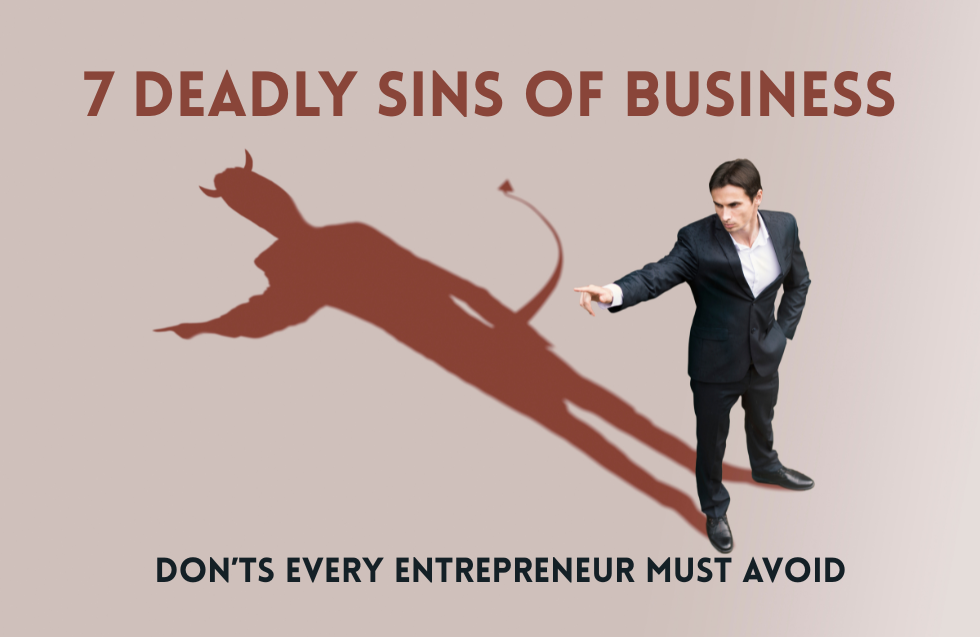Starting a business is an exciting venture, but many entrepreneurs fall into common pitfalls that can distract their success. While mistakes are part of the learning curve, being aware of the most frequent errors can help you avoid them and build a more successful, sustainable business. Here are the top 10 mistakes entrepreneurs make and how to avoid them:
1. Lack of Market Research
One of the biggest mistakes entrepreneurs make is failing to conduct thorough market research. Understanding your market, customer needs, and competitors is crucial for creating a viable business plan. Without this, you risk offering products or services that don’t meet market demand or are overpriced.
How to Avoid: Conduct surveys, interviews, and competitor analysis. Use tools like Google Trends, industry reports, and social media insights to gather relevant data.
2. Not Defining a Clear Target Audience
Trying to appeal to everyone can lead to wasted resources and mixed messaging. Entrepreneurs often believe that casting a wide net will bring more customers, but this can dilute their brand’s impact.
How to Avoid: Create detailed buyer personas that represent your ideal customer. Focus on addressing their specific pain points and preferences in your marketing and product development.
3. Poor Financial Management
Financial mismanagement is one of the top reasons startups fail. Entrepreneurs may underestimate startup costs, overspend on non-essential items, or fail to properly manage cash flow.
How to Avoid: Create a detailed budget, track expenses closely, and forecast your cash flow regularly. Hiring a financial advisor or accountant early can also help you stay on track.
4. Neglecting a Business Plan
Many entrepreneurs skip writing a formal business plan, opting to “wing it.” This can lead to unclear goals, poor strategic direction, and lack of investor interest.
How to Avoid: Develop a comprehensive business plan that outlines your vision, mission, target market, revenue model, and growth strategies. This roadmap will help guide your decisions and keep your business focused.
5. Underestimating the Importance of Marketing
You could have the best product or service in the world, but if people don’t know about it, your business will fail. Many entrepreneurs undervalue the importance of marketing or fail to invest in it early enough.
How to Avoid: Develop a strong marketing strategy from the beginning. Focus on digital marketing channels such as social media, SEO, email marketing, and content marketing to build brand awareness and engage with customers.
6. Trying to Do Everything Alone
Entrepreneurs are often highly driven, but taking on too much can lead to burnout. Many feel they need to wear all the hats – from product development to marketing to bookkeeping – which can dilute their focus.
How to Avoid: Delegate tasks to skilled team members or outsource tasks like accounting, social media management, or customer service. Building a team with diverse skill sets can help your business scale faster and more efficiently.
7. Ignoring Customer Feedback
Some entrepreneurs believe they know what their customers want without listening to them. Ignoring feedback can lead to a product-market misalignment and missed opportunities for improvement.
How to Avoid: Actively seek customer feedback through surveys, reviews, and direct communication. Use this feedback to refine your products, improve services, and adjust your business strategy.
8. Failing to Pivot When Necessary
Entrepreneurs can become too attached to their original business idea, even when the market or their customers are signaling a need for change. Stubbornly sticking to a failing model can lead to the business’s downfall.
How to Avoid: Be open to change and adapt to market trends or customer demands. Regularly evaluate what is and isn’t working in your business, and don’t hesitate to pivot when necessary.
9. Scaling Too Quickly
Rapid growth is exciting, but scaling too quickly without the right infrastructure or team can lead to operational chaos. Many entrepreneurs overextend their resources or fail to meet increasing customer demands.
How to Avoid: Grow sustainably by gradually increasing your team, infrastructure, and customer base. Focus on solidifying your operations and ensuring your business can handle the increased workload before expanding.
10. Not Taking Care of Themselves
Entrepreneurial burnout is real, and many business owners neglect their mental and physical well-being in the hustle to grow their business. Overworking without proper rest and self-care can lead to poor decision-making and burnout.
How to Avoid: Prioritize work-life balance. Take breaks, set boundaries, and maintain a healthy lifestyle. A rested, healthy entrepreneur is more productive and better equipped to handle the challenges of running a business.
Conclusion
Entrepreneurship is a rewarding journey, but it comes with its challenges. By being aware of these common mistakes and taking proactive steps to avoid them, you’ll be better positioned to succeed. Embrace the learning process, seek advice when needed, and stay flexible as you navigate the ups and downs of business ownership.













